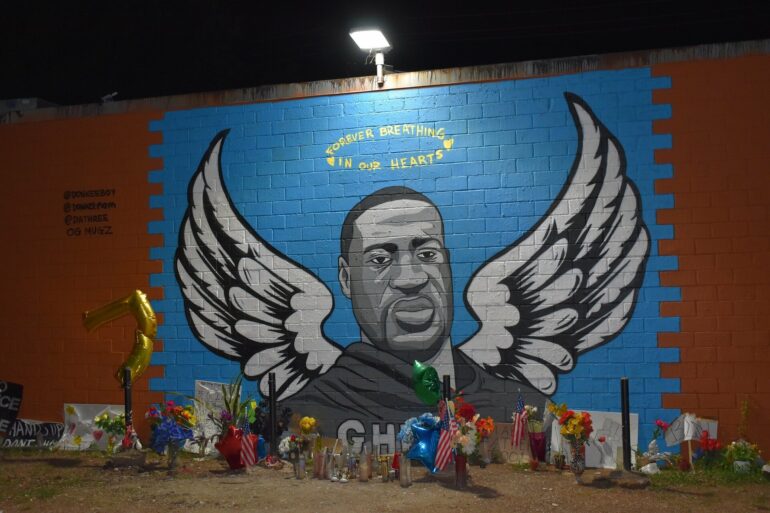Only a handful of U.S. states showed a surge in gun violence incidents in mid-2020 during civil unrest at the start of COVID-19 lockdowns and the murder of George Floyd, a new study finds.
Published today in Chaos, the study applied new data analysis techniques to identify and better understand shifts in gun violence patterns in the U.S. from 2018 to mid-2022.
Study co-authors Dr. Nick James, University of Melbourne and Dr. Max Menzies, Tsinghua University, said their findings counter public perceptions and media coverage of higher gun violence incidents across the country in mid-2020.
Dr. James, research fellow at the Melbourne Center for Data Science, said the study looked at April 2020 as a trigger point when U.S. media reported widespread violence and civil unrest due to COVID-19 lockdowns, George Floyd’s murder and the subsequent Black Lives Matter protests.
“Minnesota, where George Floyd was killed, experienced the greatest change in its gun violence behavior immediately after Floyd’s death,” Dr. James said.
“Prior to this event, Minnesota had experienced a decrease in gun violence incidents. This data highlights the complex social and cultural interplay of gun violence and social injustice within the U.S.”
The study analyzed gun violence incidents on a state-by-state basis recorded by the Gun Violence Archive, a non-profit organization that collects and verifies detailed, real-time data from law enforcement, government, and other commercial sources.
Dr. Menzies said the state-by-state analysis uncovered observations that challenge media reporting on U.S. gun violence in mid-2020.
“Despite media reporting on rising trends, we only found a few states with a clear ‘up-down-up’ surge in gun violence activity in mid-2020,” Dr. Menzies said.
“Some states, most of all Texas and New York, exhibited an increase in gun violence post-2020 compared to pre-2020, but others, most of all Florida and Massachusetts, exhibited a decrease.
“This is contrary to some of the reporting in the U.S., which focuses more on uniform national trends and may miss details at the state level. We analyzed both raw increase and decreases in total magnitude of events, as well as which states exhibited the greatest shifts in periodic behavior, which we termed dual-domain analysis.
“We didn’t see any patterns in terms of red or blue states, which is another interesting finding of our work.”
Using a time series analysis, the study identified “change points” that occur when the number of gun violence incidents either increases or decreases sharply.
Implementing a method known as hierarchical clustering, the study identified three clusters of states. In the first cluster—24 states in all—no discernible change points were detected in the entire period studied from 2018–22. A smaller cluster of 12 states showed only one change point in late 2021.
Only within the third cluster of seven states is there a clear 2020 summer jump. Ohio, New York, and Missouri demonstrated the clearest instances of this 2020 summer surge.
The U.S leads the world in both gun ownership and prevalence, and leads the developed world in gun incidents, injuries, homicides and suicides.
“The U.S is the only country with more guns than people and gun regulation varies significantly between states,” Dr. James said.
“There have been few in-depth statistical studies carried out on a state-by-state basis, and we believe this is the first paper of its kind. We hope it sparks further study in this area to assist policymakers and governments to better understand the complexity of gun violence across the United States.”
More information:
Dual-domain analysis of gun violence incidents in the United States, Chaos (2022).
Provided by
University of Melbourne
Citation:
Gun violence across America: Unexpected trends revealed by statistical analysis (2022, November 1)



